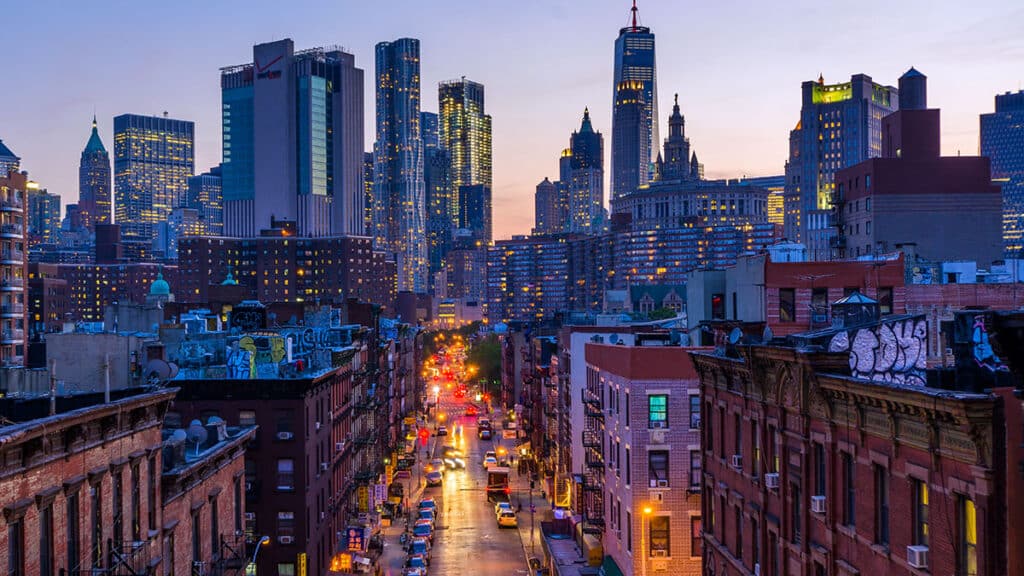The Tribeca Film Festival is one of New York City’s major film festivals. It’s not just a film festival. It’s an intersection of film, celebrity, and popular culture. Tribeca is very good at including works by women and people of color.
23rd Tribeca Film Festival 2024

The 23rd Tribeca Film Festival 2024 is in Tribeca, Manhattan and all over New York City from June 5-16, 2024. 🇺🇸 🇦🇷 🇧🇴 🇨🇱 🇨🇴 🇯🇲 🇮🇹 🇲🇽 🇳🇬 🇵🇷 🇸🇴 🇺🇾
This edition features work by 114 filmmakers from 48 countries. There are lots of premieres, filmmakers, actors, and below the line production people. Many films are directed by women and directors of color. The opening night film is “Diane von Furstenberg: Woman in Charge,” by Trish Dalton and Sharmeen Obaid-Chinoy.
Latin Films
These are just a few Latin film highlights.
“Bam Bam: The Sister Nancy Story” is a Canadian feature about Sister Nancy, the singer on the iconic Dancehall “Bam Bam” (1982) who really hasn’t been credited for her influence until now. 🇯🇲
“¡Beso de lengua!” by José Luis Zorrero, is a Mexican short about the games lovers play. 🇲🇽
“La Cocina,” a Mexican film by Alonso Ruizpalacios, is a story of dreams and interruptions of those dreams in a Times Square kitchen. 🇲🇽
“Delejos,” a Puerto Rican film by Julie Piñero and Cristal Duhaime, is a semi-autobiographical, romantic docudrama about a woman who recovers from the death of her video-game designer boyfriend, by gaming herself. 🇵🇷
“The Dog Thief,” a Bolivian Film by Vinko Tomicic, is the story of a street orphan who meets an old man, and steals his support dog, only to develop a friendship with the old man that neither anticipated. The film features beautiful cinematography of La Paz, the Bolivian capital. 🇧🇴
“Don’t You Let Me Go,” an Uruguayan narrative film by Ana Guevara and Leticia Jorge, is a tribute to the bonds of women’s friendship that extend from this life into the next. In Spanish with subtitles. 🇺🇾
“Five Ways to Get Rid of a Hickey,” a Chilean short by Colectivo Niñita Perversa, tells the story of two young teens learning about love and themselves. 🇨🇱
“The Freshly Cut Grass,” an Argentine film by Celina Murga, tells the story of two academics who deal with midlife by having affairs with students. 🇦🇷
“In the Summers,” an American film by Alessandra Lacorazza Samudio that stars René Pérez Joglar (better known as Calle 13 rapper “Residente”), tells the story of how family relationships can shatter in ways that can never be put back together again. 🇵🇷
“I Want to Violently Crash into the Windshield of Love,” a Mexican short by docudrama by Fernanda Tovar, tells the story of a heartbroken Mexico City rapper who discovers her inner powers through freestyle rap. 🇲🇽
“Mean Streets” is Martin Scorsese’s masterpiece about life in Manhattan’s Little Italy, starring Robert De Niro. 🇮🇹
“Missing From Fire Trail Road,” an American film by Mary Ellen Johnson Davis, a documentary investigation of the disappearance of hundreds of Native American women without consequences. 🇺🇸
“Passarinho,” a Mexican short by Natalia García Agraz, tells the story of two teenage girls whose plan to meet their favorite soccer player is interrupted by the shock of one of the girls’ first period. 🇲🇽
“Punta Salinas,” a Puerto Rican short by Maria del Mar Rosario, tells the story of a 16-year old girl who discovers her inner strength after having sex for the first time. If you know Puerto Rico, this film will make you miss home. 🇵🇷
“Rent Free,” a narrative feature by Fernando Andrés, who return home to Austin, Texas after a New York City visit turns sour, and decide to try and couch-surf rent-free for a year, until things go sour. 🇺🇸
“¡salsa!,” a Colombian short by Antonina Kerguelan Roman, tells the story of a Colombian woman who explores freedom with a deaf tourist. 🇨🇴
“Samia,” by Yasemin Samdereli with Deka Mohamed Osman, is based on the true story of Samia Yusuf Omar, a Somali woman who against the odds achieves her dream of running in the Olympics, but faces new challenges from her country’s collapse on returning home. In Arabic, English, and Somali with subtitles. 🇸🇴
“The Weekend,” a Nigerian film by Daniel Oriahi, about an orphaned woman who dreams of having a family and finds it with her fiancé. She pushes him to visit his family, but finds that many families have serious baggage. 🇳🇬
2024 Venues
Spring Studios in Tribeca, Manhattan is the official hub. There are screenings at:
- Beacon Theatre in Manhattan’s Upper West Side.
- BMCC Tribeca Performing Arts Center at the Borough of Manhattan Community College in Tribeca.
- Pier 57 in Chelsea, Manhattan.
- SVA Theater in Chelsea, Manhattan.
- Village East in Manhattan’s East Village.
Tribeca Film Festival
The Festival was founded in 2003 by Robert De Niro, Jane Rosenthal, and Craig Hatkoff to bring people back downtown after the 9/11 attack. It has grown into one of New York City’s and America’s major film festivals.
It has an activist point of view.
Tickets
tribecafilm.com
X @tribeca
Facebook @tribeca
Instagram @tribeca
